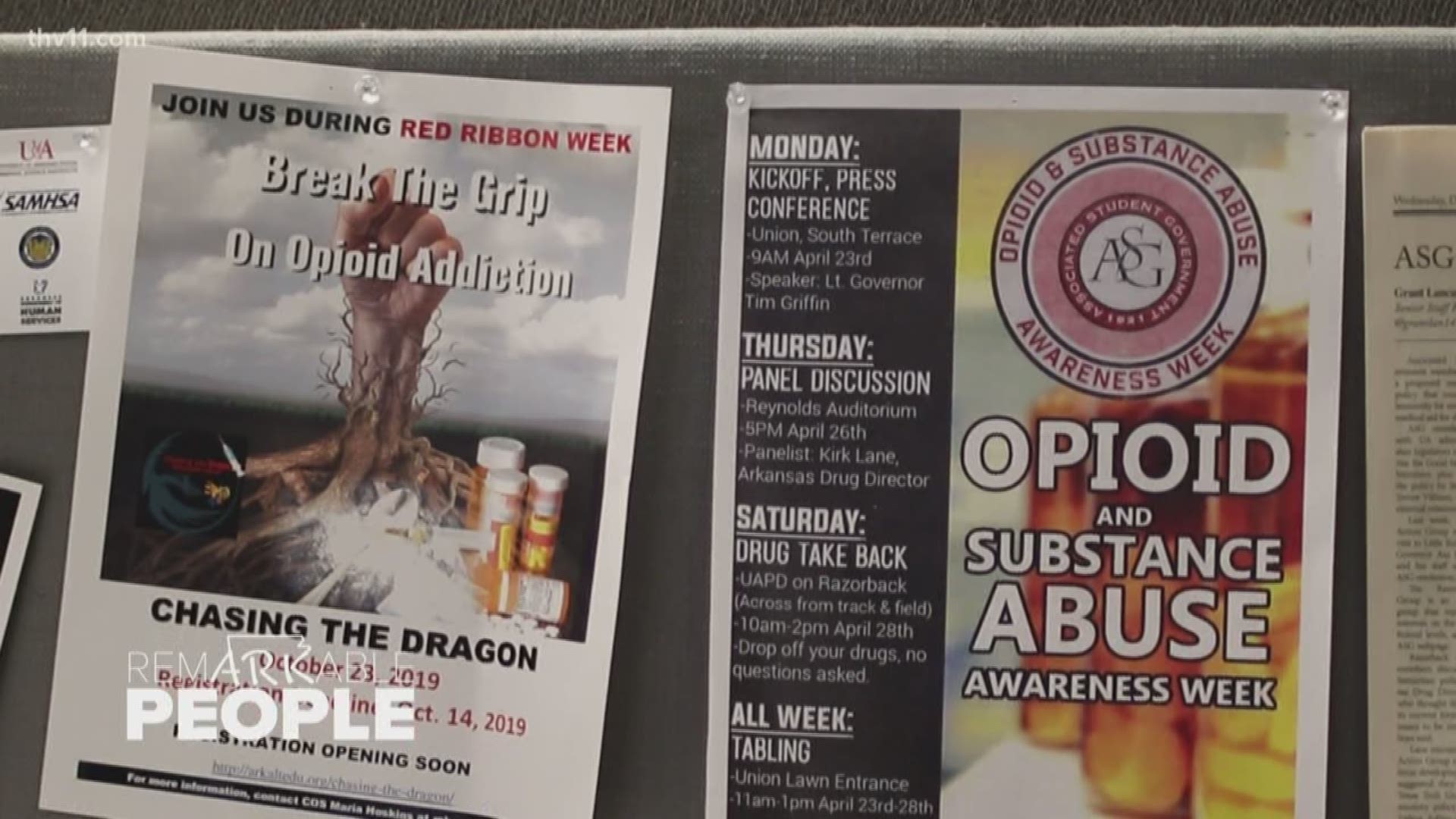LITTLE ROCK, Ark. — Each month, we're taking the time to feature the good in central Arkansas, and the good people doing it. It's a series called 'Remarkable People.' And today, we meet Trevor Villines.
"I truly believe if we're going to solve this problem, this epidemic, this substance abuse issue that we see, we have to stop talking and start listening," said Villines. Listening is how he first learned about the opioid crisis. "It was shocking, honestly," he remembered.
A college student at the time, he was the chair of an advocacy program at the University of Arkansas, when a student asked what student government was doing about opioids. "I didn't know what an opioid is or anything about this epidemic," he admitted, "and that was back in 2017."
A lot has changed for him in the two years since.
While Villines discovered there were resources available to help students in Fayetteville, not a lot of people knew it. And at some colleges across the state, there was no help. So he got to work. This past spring, he partnered with students at each of the state's four-year schools, starting an event called 'Save Our Students,' a week-long program about drug education and drug awareness.
"We can't just go in there and do presentations, had out statistical charts," he explained. "We need testimonies. We need personal relationships, stories. This is what happens to you if you abuse substances."
And that was just the beginning. After graduating last May, he got a job with the Department of Human Services as a substance abuse collegiate program coordinator. A long title, with a concise goal, "potentially save someone's life," he said. Now, he travels the state, building a team he calls the 'Arkansas Collegiate Network'. Students, faculty, resources coming together at 12 campuses.
And it's not just focused on one drug. "Some have got a huge opioid problem," he explained, but "some have got a huge alcohol problem. Marijuana, maybe it's study drugs."
The network is built around a national program called CADCA. A non-profit aimed at building drug-free communities. And it is a team effort. "We've got people at the Department of Health working with us," he said, "we've got people with the FBI, people with the DEA, regular people talking to their friends of the dangers of opioids. That's what it's going to take. We've got a long road ahead. That's the honest truth. A solution doesn't just happen overnight."
Villines says the end goal of this project would be to help with prevention, treatment, and recovery. But for now, the focus is on prevention.
If you have a Remarkable Person you'd like for us to feature, reach out to Rob on social media at @robevanstv.
More from THV11's Remarkable People Series:

